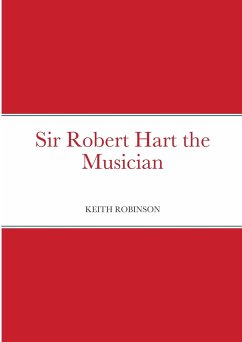This book draws together previous research into Sir Robert Hart's musical activities with new research about his musical interests. A lot of the changes that took place in the 19th Century in the attitude towards music can be seen in his life. He was seemingly a self-taught violinist but he practised every day, studied etudes, bought the latest Dodd bows and was not content to be a mediocre performer. It's a myth to think that Hart's Brass Band was the first Chinese Brass Band in China because the Jesuits were much more important in the initial development of Chinese Brass Bands. What makes him special was his influence with his work colleagues and his interest in Chinese music. George Carter Stent acknowledged this when he wrote: "(he) is ever ready to assist by his countenance and support any work tending to increase an interest in, and knowledge of, China and the Chinese." His string Orchestra, although historically it has received much less attention, is in fact of critical importance. The Chinese Military Bands were ensured of growth because of the endless conflicts that occurred, but the Chinese western symphony orchestra's development can be shown to be a legacy of Hart's String Band. It may just have been an extraordinary felicitous coincidence that Hart's protégée Dora van Mollendorff should be the teacher of Xiao Youmei, who then returned to Beijing and recruited many of Hart's Band Boys for the first Chinese Symphony Orchestra.
Hinweis: Dieser Artikel kann nur an eine deutsche Lieferadresse ausgeliefert werden.
Hinweis: Dieser Artikel kann nur an eine deutsche Lieferadresse ausgeliefert werden.








